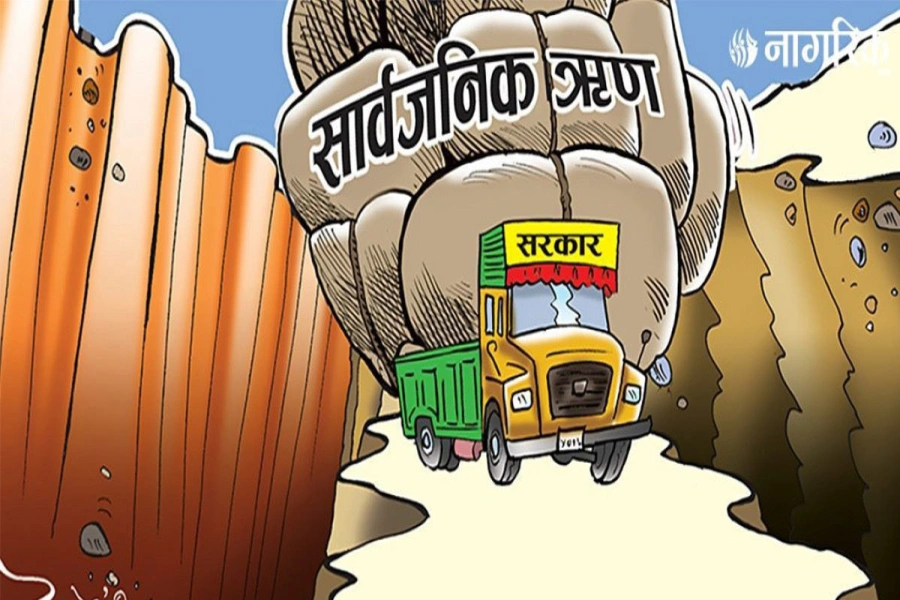Life of poor people in Siraha starts with loan and ends with loan
SIRAHA, Feb 19: There is a row of thatched huts in an unregistered plot of land just besides the road in Dhangadhimai Municipality-3 of Siraha district. Sukani Saday and her family have been living in one of the huts. After spending all of her money for the marriage of her two daughters, Saday is now worried how will she raise her other two daughters and a son.
In the name of assets, all they had was a piece of land. Unfortunately, they had to sell the 10-dhur land last year to pay the loan which they had borrowed for the marriage of the daughters. Even after selling the land, her family has not been able to get rid of the debt completely, laments Saday. According to her, she still has to pay Rs 150,000 to the landlords.
Whether it is birth, marriage or any other important ceremony, destitute people like her have no other option than to spread their hands in front of the landlords. "After taking loan from the landlords, we will have to spend our whole life clearing the debt," said Saday.
Currently, Saday is wondering how she will manage loan for the marriage of her third daughter. "We are asked for dowry during marriage but we have got nothing at all," she said. As the squatters don't have proper source of income, persuading the landlords for loan is a challenge in itself.
Public debt hits Rs 2.8 trillion mark

In recent days, bamboo products have been replaced by fiber and plastic. This has badly affected the income of the Doms.
The money that they earn from working in the fields of other people is spent on buying two square meals a day. “There are days when we have to eat our meal with only salt," Saday shared. They often get ill but cannot afford to buy medicines. While visiting hospital, doctors suggest them to eat healthy diet. "How can we buy medicines and nutritious food when it's challenging for us to manage meal twice a day," she added.
Similarly, the misery of Aruhuli Malik of the same village is no different. Last year, she arranged the marriage of both of her daughters on the same day to save expenses. Even after spending all the money earned in her lifetime, the wedding expenditures were more than estimated. As a result, she had to beg for loan with her landlords again. The family now has a debt of Rs 75,000.
Raising pigs and making bamboo products have been the traditional occupation of the Dom community. In recent days, bamboo products have been replaced by fiber and plastic. This has badly affected the income of the Doms. The little money that they earn is spent on their survival.
Jahari Malik, mother-in-law of Aruhuli, said, "Life of poor people like us starts with loan and ends with loan."
Members of this community are longing to free themselves from the burden of debt but are unable to do so. Despite wandering from place to place, these people have not been able to get decent jobs. They are eagerly waiting to experience the change with the implementation of the new federal system.
Though the government has entered a new phase after federal restructuring, nothing has changed in the lives of people from the poor and marginalized communities.
Saday and Malik are just the representative cases among thousands of squatters and Doms whose plights and pleas have always been neglected.



































